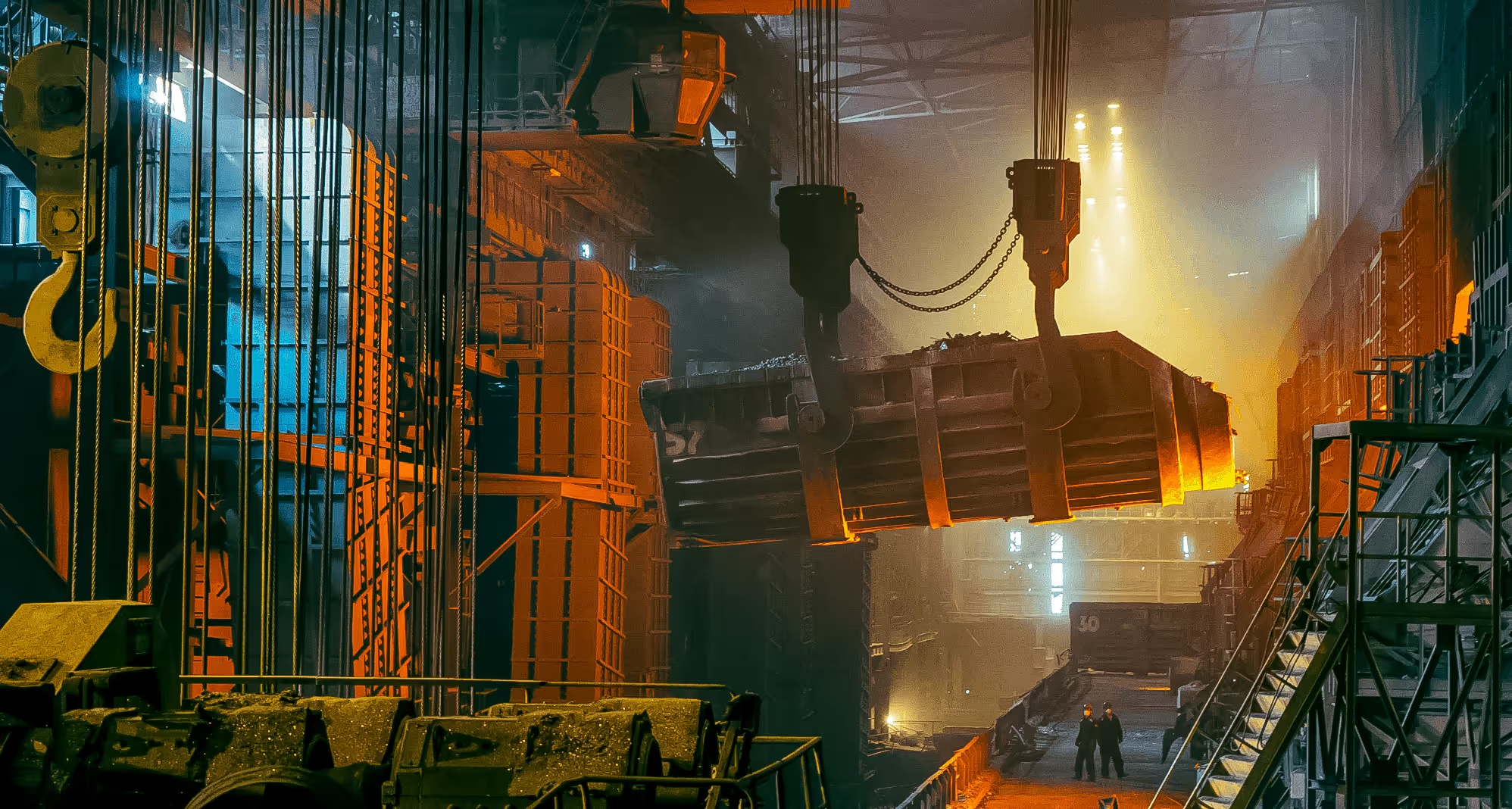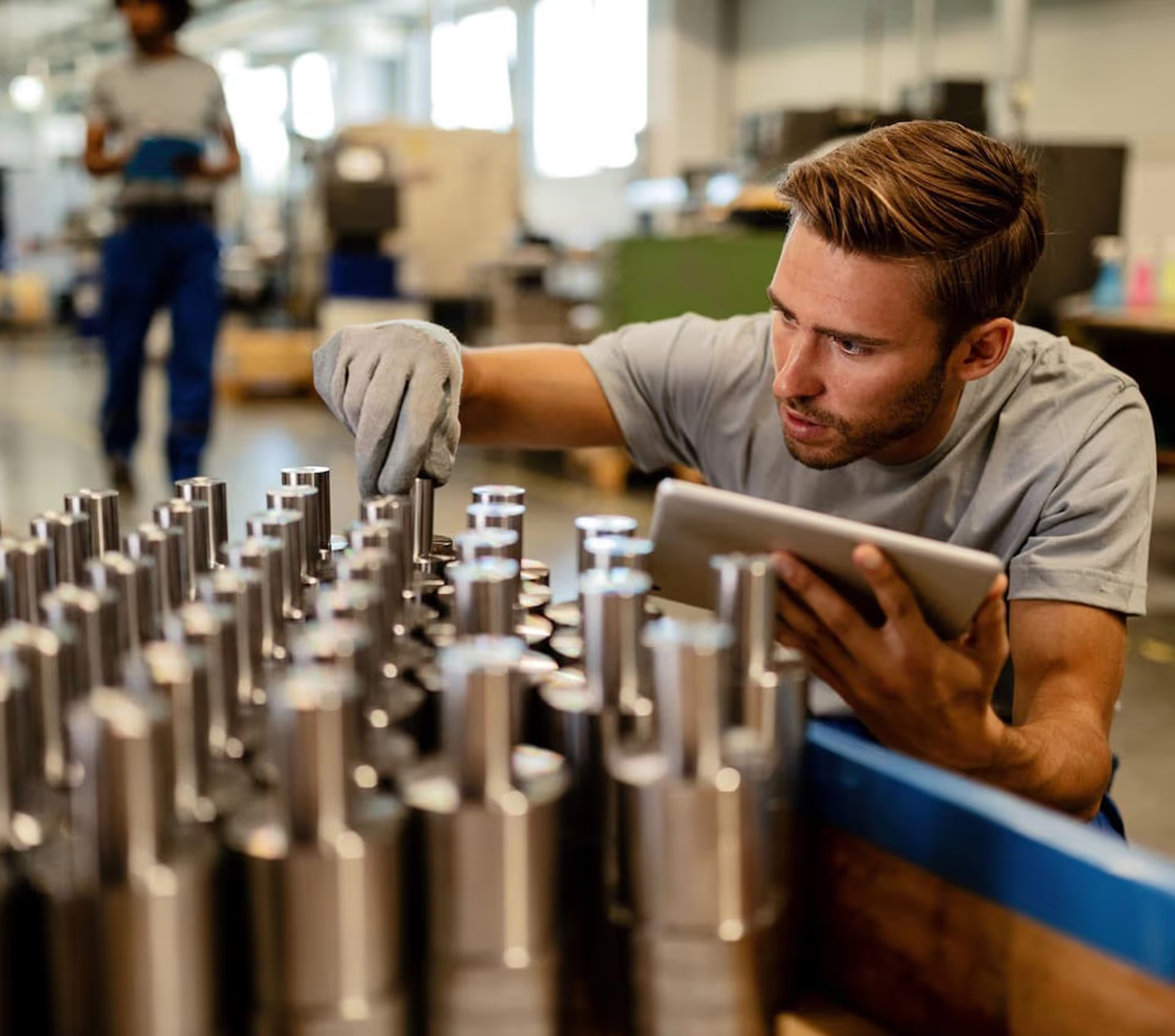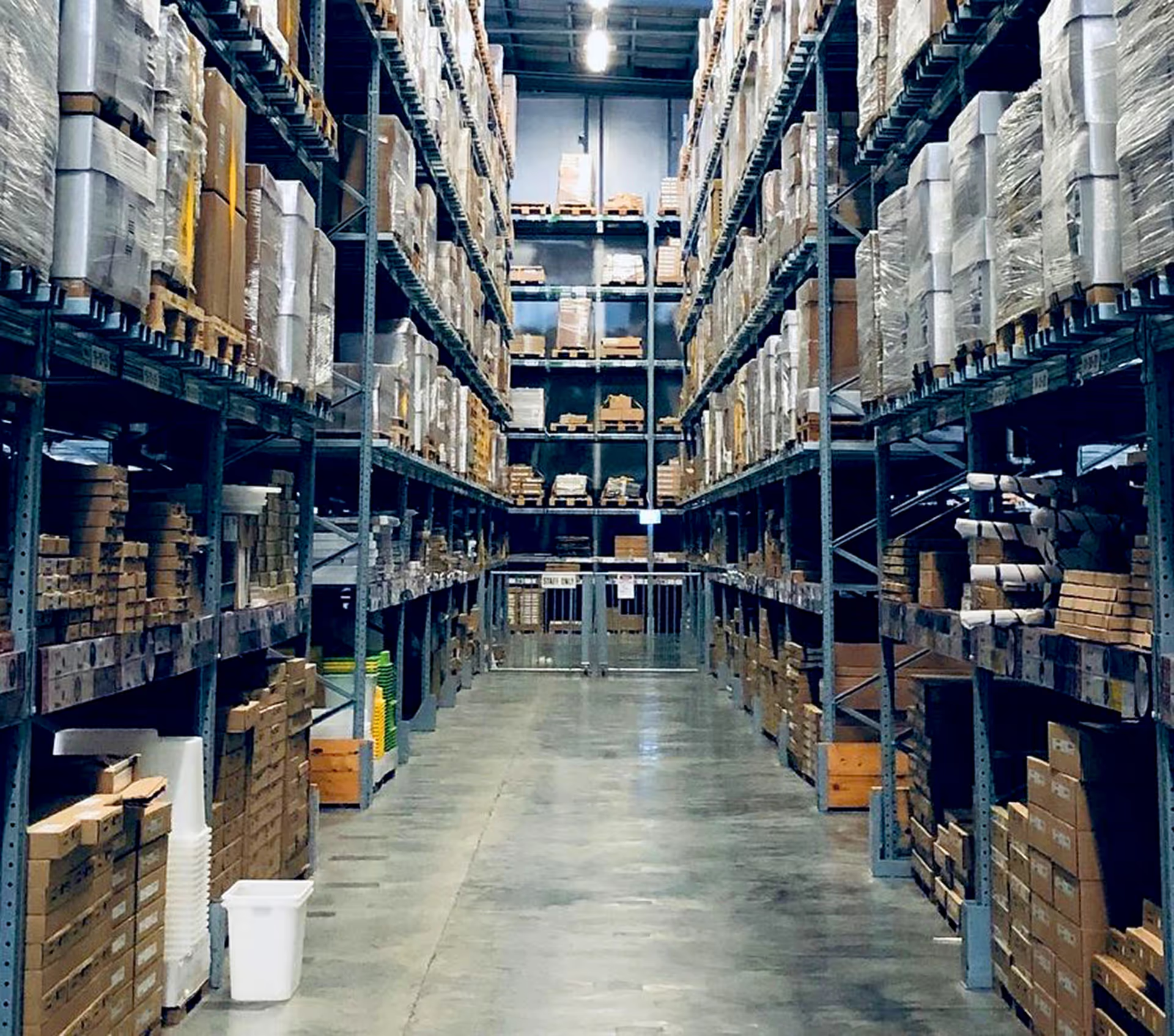While it's common to think of China manufacturing when a business thinks about sourcing retail or ecommerce goods, using China to source manufacturing equipment is a surprisingly good strategy. Businesses can get excellent cost savings when sourcing from China, and in some instances, may be able to get access to machinery that simply isn't available locally.
However, it is paramount to understand the appropriate process of sourcing machinery from China, including how to find the right supplier or getting the right kind of help (like from a sourcing specialist like Kanary). Unlike retail products, where defective products are common and can be remedied, sourcing defective machinery can cause enormous problems.
Kanary has a niche specialty in sourcing machinery from China, so we've created a guide with four easy steps outlining how to get the machinery you need from China.

Step 1: Find a China Machinery Supplier
The first step to sourcing machinery from China is to start looking at potential suppliers. We're going to give some general tips you should follow to do this, but there's something we should emphasize here: you need to use a sourcing specialist to help you find a machinery supplier in China.
The reason you need a sourcing specialist for machinery is that if anything goes wrong in the process (either they don't have the capability to make your machine but try anyway, there's confusion about your machinery specifications, or there's quality control issues), and you end up with a defective product, you'll be out an enormous amount of time and potentially thousands of dollars.
Unless you or someone on your team has meaningful experience sourcing machinery from China, use a sourcing specialist (even if you don't end up partnering with Kanary).
How to Find a Machinery Supplier in China
If you decide to try to find a machinery supplier on your own, there's a few different routes you can take to do so:
- Use Alibaba: Alibaba is the largest online B2B platform in the world, specializing in connecting businesses and suppliers. Not all suppliers on Alibaba are reputable, so you'll need to take care in making sure you find a trustworthy, high-quality option. For a machinery supplier, your options may be few and far between.
- Ask Industry Peers: If you have connections that have source machinery from China, they may be able to refer you to a supplier they had a good experience with. Keep in mind that just because a supplier worked for their needs doesn't mean they'll work for yours, too.
- Trade Shows: You may find a China supplier at trade shows that are focused in the specific industry you need machinery for. For example, construction trade shows, agricultural trade shows, and other specialty trade shows may have suppliers attending that you can connect with.
Start with a Lot of Suppliers, Then Start Eliminating Options

Ideally, you'll want as many potential suppliers as possible while you're looking for options. When looking to supply retail or ecommerce products, we recommend that businesses get a list of 20-30 suppliers. For sourcing machinery, your options will be far less, so you won't have as many options to choose from (but still take your time finding as many options as possible).
When narrowing down your supplier list, there are some general factors to consider that will help you eliminate some choices, like:
- Do they communicate well?: If you have trouble communicating with a potential supplier (either because of a language barrier or other reasons), they're not going to be a good choice to source your machinery. You'll be communicating a lot of technical details and specifications, so communication needs to be clear from the beginning.
- What are their lead times? You could find the perfect supplier, but it won't do much if they have long lead times that don't fit your business needs. You need to make sure that, if they are taking orders, they can get your machinery to you within a time frame that makes sense.
- How experienced are they? Your business is already taking a chance if you tried a new supplier for consumer products, but it's an even bigger risk when you consider a new supplier for machinery. Unless you're under the guidance of a sourcing specialist, we don't recommend choosing new suppliers for machinery sourcing.
Unique Considerations for China Machinery Suppliers
Aside from the general considerations above, there are some unique considerations you need to take into account when looking at machinery suppliers. You need to make sure a potential supplier:
- Has made the machinery you want before, or at least has made machinery in the same industry (for example, construction machinery)
- Has the engineering capability to incorporate custom design requests (if needed)
- Is familiar with any certifications that are necessary to export your machinery
- Knows what specific regulations for machinery at the final destination, and whether they have experience exporting at all
You'll also need to determine what component manufacturers they work with (as they likely will be sourcing parts or raw materials from another supplier), and what the lead times are for the different parts of your machine.
Sampling
Unlike ecommerce or retail product sourcing, there isn't a sampling process for sourcing machinery. Instead, you should request videos of machinery being used (so you know it actually works), as well as other documentation (like specification sheets) that show the machine was correctly manufactured.
It will also be important to perform a factory inspection, verify the engineering specialty of the factory, and to be hands-on with quality control. We'll talk a little more about this later in the article, but for now, just know there is not a true sampling process when sourcing machinery.
Pricing
Pricing can help you weed out supplier options, but that doesn't mean only going after the cheapest choice. In fact, a machine that is too cheap is actually a huge red flag. It could indicate they aren't using the best electrical components, or they're skimping on other materials that can hurt the overall quality of the machine.
Likewise, if the price of a machine is more expensive than anything else on the market, that could also be a red flag. You could be working with a trade company instead of an actual factory, which means you're paying more just because you're connected to a middle man, not because you're getting a higher quality product.
You need to find a high-quality supplier that will, first and foremost, be able to build your machinery to your specifications. While a business still needs to consider pricing, it should not be the primary factory in choosing a machinery supplier, though pricing extremes on either side can help you avoid low-quality factories or trade companies.
Multiple Supplier
When you source machinery, it rarely involves only one supplier. There will be suppliers that machine certain components, and other suppliers that assemble all the components into the final product. For example, if you're building a generator in China, the alternator and the engine will often come from other countries, like Volvo engines from Sweden.
You may get lucky and find a supplier who is willing or able to seek out additional suppliers on your behalf, but you shouldn't count on this. Most machinery sourcing involves connecting with multiple suppliers (which is another big reason that you should work with a sourcing specialist if you're sourcing machinery).
Step 2: Begin Production of Machinery with China Supplier
After you have connected with the required suppliers, agreed on pricing, and signed a contract, it's time for production to begin. Of course, your involvement doesn't stop here. In fact, it will become crucially important for you to remain actively engaged in the production of your machinery.
Let's talk about some of the several way you need to be involved during production:

Monitor Quality Control
Since you don't get to have a sampling process, you must actively monitor the quality control of production. Ideally, this means you are physically present in the factory, or at the very least performed an inspection of the factory before production began. If you can be at the factory regularly, then regular photos and videos of production are a must (and something you should be asking for anyway, especially if you have multiple suppliers working at the same time).
A supplier may offer to do quality control themselves, but you should never only have the supplier conduct quality control. The more quality control activity you have, the better, but having a third party conduct quality control is like having an additional partner that will help keep your supplier in check.
The need for strict quality control is one reason my companies opt to work with a sourcing specialist, like Kanary.
Machinery Must Meet Safety Standards
Machinery from China will need to meet the safety standards of the destination country, and those safety standards can vary widely. Ideally, your supplier has export experience so they know what the standards are, but should you choose a supplier that doesn't, you'll need to ensure that they build your machinery in accordance with applicable regulations.
Get Testing Performed
You need to anticipate getting testing your machinery, which will ensure that it's functioning correctly and in accordance with required regulations. For example, if you're sourcing a generator, you'll need a load report of the generator running for a specific amount of time at a specific capacity to make sure that it's working correctly.
The tests you need will vary from machine to machine. For example:
- For a bag labeling machine, you want to know how many bags are labeled per minute
- For a chocolate cooling funnel, you need to measure how long the cooling process takes through the tunnel and whether or not it was successful
- For a vertical packaging machine or a horizontal flow wrap machine, you want to know how many bags are packed per minute
- For a color sorting machine, you want to know the reject rate of the food going through the machine
The cost of test results vary, but it can be a few thousands dollars to get tests completed (depending on the kind of test and the machinery). Just make sure to understand the testing cost, as this is a step you cannot afford to skip.
Formal Test Runs
Finally, you need to oversee several test runs of your machinery to make sure that it actually works. This needs to be done by you (or a trusted third-party), and this will be your last chance to make sure the machine is built to your specifications before shipping begins.
Step 3: Import Machinery From China

Once your machinery is complete, it's time to import the product from China. Shipping products from China is already a complicated task, but when you consider shipping machinery, it becomes even more complicated. Knowing how to properly ship your machinery can prevent unnecessary damage, as well as delays to the final delivery.
Prepare For Sea Freight
With very rare exception, your machinery is going to be shipped via sea freight. For a successful shipping experience, make sure that you:
- Reserve a container ahead of time: You should reserve your shipping container before or as production begins. Depending on availability, the wait times for a container can be weeks. If you wait to reserve a container until your machinery is complete, you'll face enormous delays and extra fees for storage while you wait.
- Reserve the right size of container: The container should be large enough to safely ship your machinery without being too large that you have a lot of wasted space, which means wasted money. However, you may need an oversized container if your machinery has unusual, uneven dimensions.
- Pack the machinery safely: You need to expect extra costs for properly packing your machinery (for example, wooden crates). In addition, the labor costs to pack your machinery will be higher, too. Make sure to prepare for those extra costs (and if you don't see extra packaging costs, that may be a red flag that your machinery isn't being properly packed)
Avoid Port Congestion
Some port congestion will be unavoidable, but you should do what you can to avoid unnecessary delays. Here are some tips to avoid as much port congestion as possible:
- Schedule your machinery to be shipped as far away from Q4 as possible (ideally at the end of Q1 or beginning of Q2).
- Use FCL shipment, if possible. For machinery, this may not always be feasible.
- Be mindful of inclement weather, or other outstanding supply chain situations.
Clearing Customs with Machinery From China
The best way to clear customs without delay is to have all of your required paperwork completed far before you actually make it to customs. Basic paperwork of almost any import will include:
- Bill of Lading
- Packing invoice
- Commercial invoice
In addition, you'll need any certifications or paperwork that are relevant to your specific machinery. For example, if your machinery is subject to EPA regulations, you'll need to have EPA Form 3520-21 completed for customs. If your machinery is packed in wooden crates, customs might ask for fumigation certificates.
Make sure you fully understand the exact paperwork that's required to clear customs with your machine, and get that paperwork prepared before your order reaches customs.
Step 4: Final Shipping with Domestic Freight Partner
While your machinery makes its way through customs, be sure to schedule final shipping with a domestic freight partner (which will either be by truck or rail). If your machinery is heavy, make sure you have the necessary unloading gear (like a forklift).
In addition to scheduling shipping, there's a few other factors to keep in mind, too:
Possible Chassis Shortage
There was a huge chassis shortage in 2022, and many industry experts are expecting that shortage to continue well into 2023. This may delay domestic shipping, so you should be sure to schedule with your freight partner well in advance (and be prepared for possible delays).
Road Weight Limits
For particularly heavy loads, your domestic freight partner should be familiar with the maximum weight loads that the local roads can handle. They may need to set alternative routes to the final destination, or make other accommodations.
Machinery Calibration
The machinery may have worked appropriately on the factory floor in China, but it will need to be recalibrated after shipping is complete. This is not a quick process, and it usually takes between a week and a month to complete. You may have the expertise to calibrate it yourself, but if you don't, you need to make sure you can connect with someone who does.
For example, Kanary has connections to engineers who can calibrate machinery on behalf of our clients.

Kanary: China Machinery Sourcing Specialists
Sourcing machinery from China offers fantastic benefits to your business, but it can be a huge headache if you make mistakes. We genuinely believe that businesses should use some kind of sourcing specialist when looking to China for machinery, but we also believe that Kanary is the best option.
What sets Kanary apart? We offer several unique benefits that are rare among sourcing specialist, including:
- True bilingual support (English and Mandarin)
- Offices in the United States and in China
- Connections to excellent suppliers (and the knowledge of how to find new ones)
- Supplier negotiation
- Quality control supervision
- Shipping coordination
- Customs assistance
- Machinery calibration after final shipping
We've sourced all kinds of machinery for clients in the past, and we have the knowledge to source any machinery you may need from China. If you want to look to China for your machinery needs, we'd love to help. Fill out our outline form here, and we'll be in touch to create a plan to get the machinery sourcing process started.
You can also call us directly at +1 305-735-1646.




.jpg)


.png)


